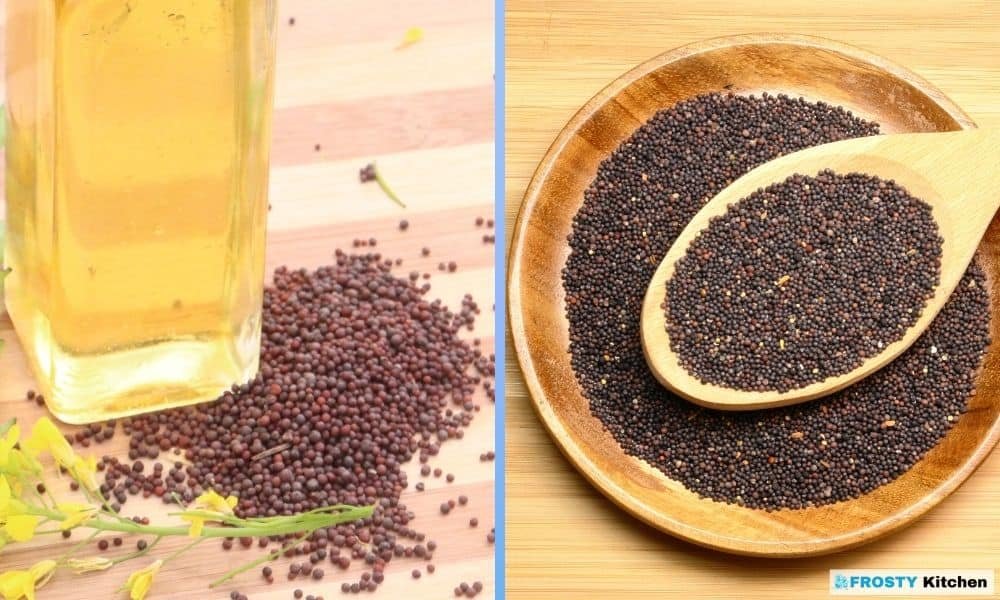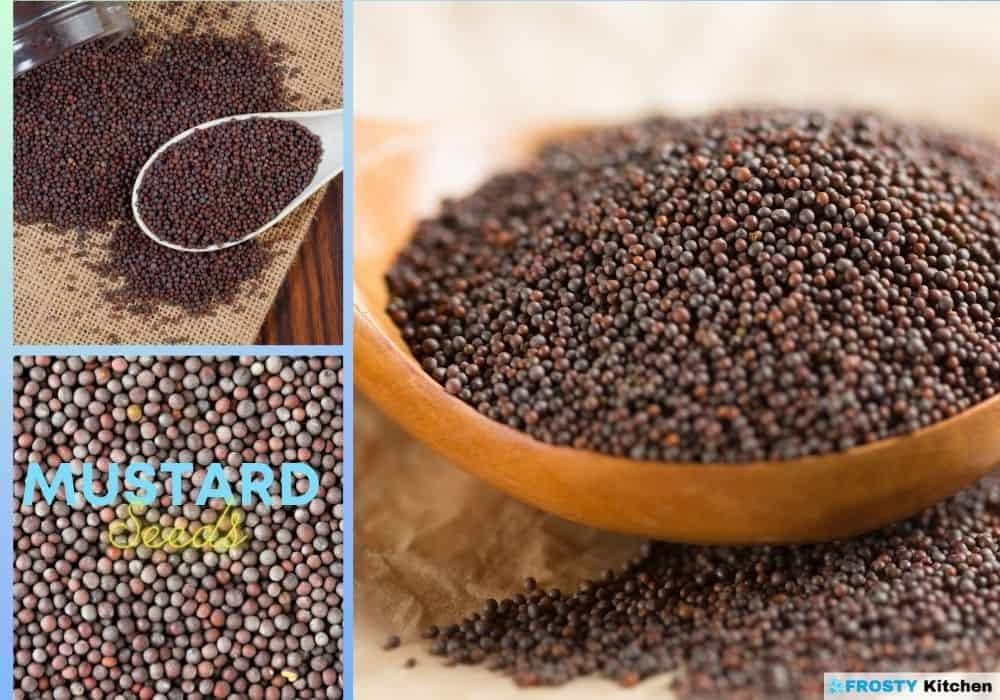Mustard seeds, with their pungent and spicy flavor, have been spicing up dishes for centuries. These small yet flavor-packed seeds are a staple in many cuisines worldwide. This guide is crafted to navigate you through the precise methods of storing mustard seeds, ensuring their zest is retained for your culinary excursions.
What are Mustard Seeds?
Mustard seeds are the small round seeds of various mustard plants. They come in different varieties, mainly white (or yellow), brown, and black, each having a distinctive level of pungency and are used differently in culinary practices.
Origin and History
Tracing back to ancient civilizations, mustard seeds have a rich history with mentions in Greek and Roman writings. Originating from the temperate regions of Europe, they soon found their way to different parts of the world, enhancing the flavor profile of various cuisines.
Nutritional Value
Mustard seeds are more than just a spicy addition to dishes; they harbor numerous health benefits:
- Rich in Selenium and Magnesium: Known for their high selenium and magnesium content, which contribute to bone health.
- Anti-inflammatory Properties: Their anti-inflammatory properties can aid in reducing symptoms of various inflammatory conditions.
- Rich in Antioxidants: Packed with antioxidants, they help combat oxidative stress.

Importance of Proper Storage for Mustard Seeds
The potency and flavor of mustard seeds are paramount, and proper storage is key to maintaining these attributes.
General Lifespan and Preservation
With appropriate storage, mustard seeds can retain their pungency and freshness for up to a year or longer.
Factors Affecting the Lifespan of Mustard Seeds
Temperature
A cool, dry place is ideal for storing mustard seeds as high temperatures can diminish their pungency and lead to quicker spoilage.
Exposure to Light
Light exposure can degrade the quality of mustard seeds over time. It’s advisable to store them in a dark place or in opaque containers.
Moisture Content
Moisture can lead to mold growth and spoilage, making it essential to ensure a dry storage environment for mustard seeds.
Packaging
Effective packaging, such as airtight containers, is crucial to shield mustard seeds from environmental adversities and preserve their quality.
Air Quality
Good air quality, especially low humidity, is pivotal in preserving the freshness and pungency of mustard seeds.
Signs of Spoiled Mustard Seeds
Appearance
Any signs of mold, discoloration, or a change in texture can indicate spoilage in mustard seeds.
Odor
A stale or off-putting smell can be a clear indicator that the mustard seeds have gone bad.
Preparation for Storage
Ensure the mustard seeds are clean, dry, and free from any debris or contaminants before storage to maintain their quality and pungency.
Picking the Right Packaging/Container
Selecting the appropriate packaging or containers is vital for preserving the sharp flavor and quality of mustard seeds. Airtight containers or vacuum-sealed bags are often the best choices.
Recommended Types of Containers for Storage
Various containers such as glass jars with airtight lids, vacuum-sealed bags, or BPA-free plastic containers are suitable for storing mustard seeds. These containers help shield the seeds from environmental adversities like air, moisture, and light, thus preserving their quality and extending their lifespan.
Step-by-Step Guide to Storing Mustard Seeds
Maintaining the zest of mustard seeds is straightforward with the right storage techniques.
Method 1: Dry Storage
- Step 1: Ensure the mustard seeds are clean and completely dry to prevent mold growth.
- Step 2: Transfer the seeds into an airtight container to protect them from moisture and air.
- Step 3: Store the container in a cool, dark, and dry place away from direct sunlight and heat sources.
Method 2: Refrigerator Storage
- Step 1: Ensure the mustard seeds are clean and completely dry to prevent any moisture-related spoilage.
- Step 2: Transfer the seeds into an airtight, dark-colored or opaque container to shield them from light and moisture.
- Step 3: Place the container in the refrigerator, ensuring it’s away from any strong-smelling foods to maintain the seeds’ flavor integrity.
Frequently Asked Questions
Q1: Can mustard seeds lose their pungency over time?
Yes, over time and especially if not stored properly, mustard seeds can lose their pungency. Ensuring proper storage in a cool, dark, and dry environment can significantly prolong their flavor potency.
Q2: How can I extend the shelf life of mustard seeds?
Storing mustard seeds in a cool, dark place, and in an airtight container can significantly extend their shelf life and preserve their pungency. Ensuring the seeds are clean and completely dry before storage also plays a vital role in extending their shelf life.
Q3: Do mustard seeds need to be washed before storing?
Mustard seeds do not typically need to be washed before storing. However, ensuring they are clean and completely dry is crucial to prevent mold growth and spoilage.

